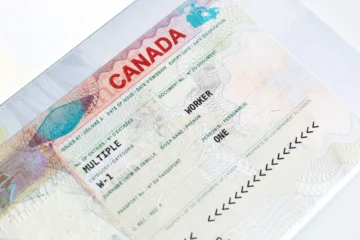Table of contents
Why study in Canada?
Canada is one of the top choices for international students throughout the world. The high quality of life in the country, the depth of the educational choices that are available to prospective students, and the high quality of the educational institutions available to students are some of the reasons why students choose to study in Canada. Canada has at least 96 public universities, with many more private institutions available for those who intend to study in Canada.
Students who study in Canada can attend well-known educational institutions such as the University of Toronto, the University of British Columbia, and McGill University. Furthermore, you will join a multi-national cohort of hundreds of thousands of international students that have chosen to study in Canada and you will have the opportunity to gain valuable life experience, meet and network with diverse populations, and learn the skills you will need to have a successful career back in your home country or in Canada.
Furthermore, Canadian international students who are attending a program other than English as Second Language (“ESL”) program are permitted to work off-campus for a certain amount of time every week to help them meet their living and educational expenses in Canada. From November 2022 to December 2023, international students have the option to work as many hours as they wish off campus every week. However, past this period, the expectation is that students will be permitted to work up to 20 hours per week off campus.
The average cost of studying in Canada for international students
The average cost of studying in Canada depends on your program of study and its length, whether you had to attend an ESL program before attending your main program, and whether you worked while studying. In pure dollar terms, an international student has to show that they have sufficient funds to pay for their first year of tuition, to pay for their flight to and from Canada, and to pay one year of living expenses in their chosen city and province. Excluding your tuition amount, we recommend showing at least $30,000 in available funds before applying for a study permit in Canada.
Custodian declaration for minors studying in Canada
In addition to accepting international students into its post-secondary educational institutions, Canada also accepts international students to attend its primary and secondary schooling institutions. However, minors cannot move to and live in a foreign country on their own. Therefore, Canada requires that either one of the parents move to Canada to take care of the child or that an individual currently living in Canada agree to act as the child’s custodian while they are studying away from their parents. If you decide to choose a custodian for your child, you will need to fill out and submit the custodian declaration form available from Immigration, Refugee, and Citizenship Canada.
What are your chances of becoming an international student?
To become an international student in Canada, you will first need to choose a program of study from a designated learning institution (“DLI”) in Canada and get accepted into that program of study.
Choose program
When choosing your program of study as an international student in Canada, you should consider factors such as your previous educational pursuits, your work experience to date and their relevance to your proposed program of studies, the effect of this program on your future career prospects in your home country, the availability of your proposed program in your home country, and the cost of the proposed program.
You will need to write a study plan justifying why you have chosen this specific program of study and why you have chosen to come to Canada for it. You will need to convince the immigration office reviewing your file at IRCC that you are a real student who will respect Canadian immigration laws and return to your home country at the end of your lawful period of stay in Canada. Many of the study permit rejections we see at Pax Law are caused by programs of study that have not been justified by the applicant and have led the immigration officer to decide that the applicant is seeking a study permit for reasons other than those stated on their application.
Once you have chosen your program of study, you will need to find out which DLIs provide that program of study. You can then choose between the various DLIs based on the factors that are important to you, such as cost, the reputation of the educational institution, the location of the educational institution, the length of the program in question, and admission requirements.
Apply to school
After choosing a school and a program for your studies, you will need to obtain admission and a “letter of acceptance” from that school. The letter of acceptance is the document that you will submit to IRCC to show that you will be studying in a specific program and school in Canada.
Apply for a study permit
To apply for a study permit, you will need to gather the necessary documents and submit your visa application. You will need the following documents and evidence for a successful visa application:
- Letter of Acceptance: You will need a letter of acceptance from a DLI showing that you have applied and have been accepted into that DLI as a student.
- Proof of Identity: You will need to provide the government of Canada with a valid passport.
- Proof of Financial Capability: You will need to show to Immigration, Refugee, and Citizenship Canada (“IRCC”) that you have sufficient funds to pay for your first year of living expenses, tuition, and travel to Canada and back home.
You will also need to write a study plan with sufficient detail to convince IRCC that you are a “bona fide” (real) student and that you will return to your country of residence at the conclusion of your permitted stay in Canada.
If you prepare a thorough application covering all the above requirements, you will have a good chance of becoming an international student in Canada. If you are confused about the process or overwhelmed with the complexities of applying for and obtaining a Canadian student visa, Pax Law Corporation has the expertise and experience to assist you with every step of the process, from obtaining admission to a DLI, to applying for and obtaining your student visa for you.
Options to study in Canada without IELTS
There is no legal requirement for prospective students to show proficiency in the English language, but having high IELTS, TOEFL, or other language test results can assist your student visa application.
If you are not proficient enough in English to study in Canada right now, you can apply for your desired program of study at a university or educational institution that does not require English language test results. If you are accepted into your program of study, you will be required to attend ESL classes until you have become proficient enough to attend classes for your chosen program. While you attend ESL classes, you will not be permitted to work off-campus.
Family studying in Canada
If you have a family and you intend to study in Canada, you may be able to obtain visas for all members of your family to come to Canada with you. If you obtain visas to bring your minor children to Canada with you, they may be permitted to attend primary and secondary schooling in Canadian public schools free of charge.
If you successfully apply for and obtain an open work permit for your spouse, they will be allowed to accompany you to Canada and work while you pursue your studies. Therefore, studying in Canada is a great option for individuals who wish to further their education without having to live separately and apart from their spouse or children for the duration of their studies.
Applying for permanent residency
After you finish your program of studies, you may be eligible to apply for a work permit under the “Post Graduate Work Permit” Program (“PGWP”). A PGWP would permit you to work in Canada for a pre-determined period of time, the length of which depends on the length of time you spent studying. If you study for:
- Less than eight months – you aren’t eligible for PGWP;
- At least eight months but less than two years – the validity is the same time as the length of your program;
- Two years or more – three years validity; and
- If you completed more than one program – validity is the length of each program (programs must be PGWP eligible and at least eight months each.
Furthermore, having educational and work experience in Canada increases your score under the current comprehensive ranking system, and It may assist you in becoming eligible for permanent residency under the Canadian Experience Class program.
This blog post if for informational purposes, please advise a professional for comprehensive advice.



0 Comments